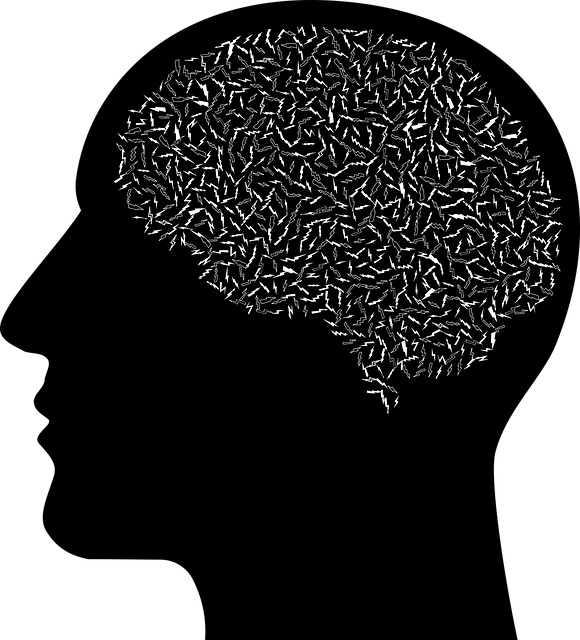Lafayette's mental healthcare system offers specialized inpatient services through Kaiser Permanente, addressing depression, anxiety, and PTSD with holistic approaches. Their program includes 24/7 monitoring, group therapy, and education for trauma support, promoting long-term recovery. Community initiatives destigmatize mental illness, providing support groups and counseling for self-esteem improvement and well-being without judgment.
In the heart of Louisiana, Lafayette stands out with its dedicated mental health care landscape. This article explores the comprehensive trauma support services available in the region, focusing on key providers like Kaiser. We delve into Kaiser’s inpatient mental health services, offering insights into their capabilities and accessibility. Additionally, we examine crisis intervention, short-term care options, and community networks facilitating long-term recovery for individuals navigating trauma, with a special emphasis on understanding Lafayette’s healthcare offerings through the lens of Kaiser’s inpatient mental health services.
- Understanding Lafayette's Mental Health Care Landscape
- Kaiser's Inpatient Services: A Deep Dive into Capabilities
- Accessing Crisis Intervention and Short-Term Care
- Community Support Networks for Long-Term Recovery
Understanding Lafayette's Mental Health Care Landscape

Lafayette’s mental health care landscape is diverse and evolving, offering a range of services to support individuals facing various psychological challenges. Kaiser Permanente, a prominent healthcare provider in the region, offers comprehensive inpatient and outpatient programs for mental health issues. Their facilities provide a safe environment where patients can receive intensive treatment, therapy, and counselling. This includes specialized care for conditions such as depression, anxiety, and post-traumatic stress disorder (PTSD).
Beyond Kaiser’s offerings, Lafayette has seen an increase in community-based initiatives aimed at reducing the stigma associated with mental illness. Local support groups and counseling centers employ empathy-building strategies to foster understanding and acceptance. These efforts contribute to a more inclusive environment where individuals can seek help without fear of judgment, promoting self-esteem improvement and overall well-being.
Kaiser's Inpatient Services: A Deep Dive into Capabilities

Lafayette residents seeking specialized trauma support can turn to Kaiser’s Inpatient Services for comprehensive care. This program offers a secure and nurturing environment where individuals with severe emotional distress or post-traumatic stress disorder (PTSD) can receive intensive treatment. The inpatient unit is designed to stabilize patients, providing around-the-clock monitoring and individualized therapy sessions tailored to their unique needs.
Through the integration of Mind Over Matter principles, Conflict Resolution Techniques, and Emotional Well-being Promotion Techniques, Kaiser’s team of mental health experts facilitates a holistic healing process. Patients engage in group therapy sessions, learn coping strategies for managing trauma-related symptoms, and gradually build resilience. This intensive care approach ensures that individuals not only find relief from acute symptoms but also develop the tools to navigate future challenges, fostering long-term recovery and improved quality of life.
Accessing Crisis Intervention and Short-Term Care

In moments of crisis, access to immediate support is paramount for individuals facing trauma. Lafayette’s Kaiser Permanente offers a robust network of crisis intervention services designed to provide short-term care and stabilize those in acute distress. This includes specialized teams equipped to handle a range of mental health emergencies, ensuring prompt attention and effective interventions. For those seeking inpatient mental health services, Kaiser’s comprehensive programs cater to diverse needs, offering a safe and supportive environment for recovery.
Beyond crisis management, Lafayette’s mental health infrastructure focuses on proactive measures such as Mental Health Education Programs Design, aiming to equip individuals with coping strategies and resilience against trauma. Additionally, addressing issues like anxiety relief and burnout prevention is a key aspect of the community’s holistic approach to well-being, fostering a more resilient and supportive environment for all residents.
Community Support Networks for Long-Term Recovery

In Lafayette, Kaiser’s inpatient mental health services play a pivotal role in trauma support, offering crucial care for those in need. Beyond hospital-based treatment, community support networks are essential for long-term recovery. These networks provide a vital safety net, enabling individuals to rebuild their lives and cultivate emotional regulation skills. By weaving together various resources, including crisis intervention guidance and social skills training, these communities foster an environment conducive to healing.
The integration of Kaiser’s expert care with community support creates a comprehensive approach to trauma recovery. This synergy ensures that those who have experienced trauma receive the necessary tools and resources for sustainable well-being. Whether through local support groups, counseling centers, or community organizations, individuals can access tailored guidance designed to address their unique needs in the aftermath of traumatic events.
In the ever-evolving landscape of mental health care in Lafayette, understanding the comprehensive services available is key. Kaiser’s inpatient facilities stand out as a robust resource for intensive treatment, while community networks offer vital support for long-term recovery. With access to crisis intervention and short-term care, residents have multiple avenues for healing. As Lafayette continues to prioritize mental wellness, these integrated services ensure that individuals can navigate their trauma journeys with enhanced resilience and improved quality of life, ultimately strengthening the overall mental health ecosystem.






